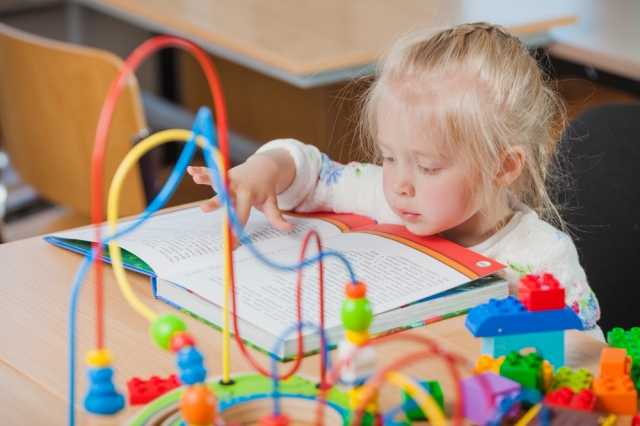When we think about education, we often picture children in classrooms, textbooks in hand, learning the foundations of reading, writing and arithmetic. But the journey of learning begins long before formal schooling.
Early years education, which typically covers the period from birth to age five, lays the groundwork for a child's cognitive, social and emotional development. Its impact reaches far beyond the classroom, influencing the trajectory of a person's life.
Why is early years education so important?
Research shows that by the age of five, a child's brain has developed approximately 90 percent of its adult volume. During these formative years, children absorb information at a rapid pace, learning from every interaction, observation, and experience.
Early education provides structured opportunities for children to explore, experiment, and engage with their surroundings in meaningful ways. It is not just about learning letters and numbers; it is about nurturing curiosity, problem-solving skills, and a love of learning that can last a lifetime.
How does early education impact long-term development?
Children who have access to quality early years education tend to perform better academically in later years. A study conducted by the National Institute for Early Education Research found that children who attended high quality preschool programs were more likely to graduate high school and pursue higher education.
These early experiences also contribute to the development of essential social skills. Children learn to communicate, collaborate, and navigate relationships with peers and adults. These abilities are vital not only for academic success but for personal growth and well-being.
What makes a quality early years program?
Quality in early years education goes beyond just curriculum. It encompasses trained and passionate educators who understand child development, safe and stimulating environments, and an approach that balances structured learning with play and exploration.
Play is a powerful tool in early education. Through play, children experiment with ideas, understand social rules, and practice decision-making. Engaging activities, whether it's building blocks, painting, or storytelling, provide opportunities for children to develop essential skills in a way that feels natural and enjoyable.
How can parents support early learning at home?
Parents are a child's first and most influential teachers. The learning that happens at home complements what children experience in early education settings. Simple daily interactions, such as reading together, singing songs, or asking open-ended questions, can have a profound impact on development.
Creating routines that include time for play, conversation, and exploration helps children build confidence in their abilities and encourages a mindset of curiosity and discovery.
Why should society invest in early years education?
Investing in early years education is not just beneficial for individual children; it has a ripple effect across society. Economists have shown that every dollar spent on high quality early childhood programs generates a return of several dollars in the long term through better education outcomes, higher earnings, and reduced social costs.
Children who receive strong early education are more likely to become engaged citizens, contributing positively to their communities. Furthermore, it helps bridge educational inequalities, giving all children, regardless of background, the opportunity to thrive.
What challenges exist in early years education today?
Despite its proven benefits, access to high quality early years childcare is not universal. Many families face barriers such as cost, availability, or lack of awareness about the importance of early education.
Additionally, there is often a shortage of trained professionals who can provide the high-quality experiences children need. Addressing these challenges requires coordinated efforts from governments, communities, and families to ensure that every child has the chance to benefit from early learning.
How can we ensure children get the best start in life?
Ensuring a strong foundation for every child involves recognizing the value of early years education and taking deliberate steps to support it. Whether it's through enrolling children in preschool, participating in community programs, or engaging in everyday learning activities at home, each action contributes to a brighter future.
By creating nurturing, stimulating, and supportive environments, we empower children to reach their full potential. The skills, confidence, and curiosity developed during the early years become the building blocks for lifelong success.
Early years education is more than preparation for school. It is the start of a journey that shapes who children will become, influencing their academic achievements, personal development, and contributions to society. By prioritizing quality learning experiences from the earliest years, we can truly build bright futures for the next generation.






